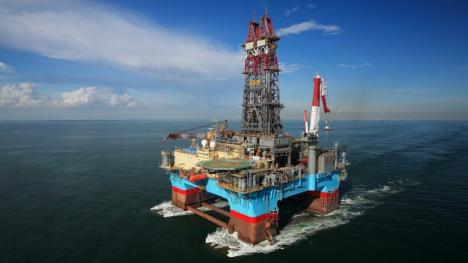
GEORGETOWN, Guyana — With a required 20 to 30 square kilometers of land somewhere along Guyana’s coastal belt to build a refinery, and a deep-water channel with a one kilometer width to access it from the Atlantic Ocean, leading minds in the oil exploration industry have told the Guyana Guardian that it will cost somewhere around G$900 billion dollars (about US$4.4 billion) to build an efficient oil refinery there.
This figure would represent an amount that is more than three times the country’s foreign debt, or almost four years of the country’s entire national budget – arguably a price tag that would immediately sink Guyana into bankruptcy.
Continuous expenses to cover facilities maintenance and salaries for even just the most essential personnel would also mean forking out just around G$3 billion per month – an extremely prohibitive figure by Guyanese budgetary standards.
And no one in the oil industry can think of any investor or conglomerate that will be willing to risk that volume of investment money for a refinery, considering the shaky ground that oil is on, and the fact that it is now an almost unprofitable commodity to invest it.
At least this is the view of Michael Boer, a former research analyst at British Petroleum (BP), one of the leading oil and gas producing companies in the world.
In an exclusive interview with the Guyana Guardian, Boer who is currently stationed in Dubai and now handles international oil market research for the Saudi government, explained that it will be a grave mistake for the Guyana government to redirect its focus on oil, and to pour taxpayers money into it.
It is a move that he said they would later come to regret.
He said that, considering the projected long term volatility of oil, the state needs to start pushing the international private sector and other cash holding foreign governments like China to the forefront of any oil risk investment in Guyana.
Otherwise the state needs to keep its own money out, and simply regulate the industry and bring needed royalties in from these investors, while continuing to guard taxpayers’ money against any potential fallout from oil.
Boer explained that Guyanese should look at Venezuela as a perfect example of what can happen when the state decides to pour its tax dollars into oil.
That country is now facing a serious economic crisis that has transcended into socio-economic chaos, after global oil prices began to tumble in 2014.
CNN and over a dozen other international media outlets had reported that Venezuela, which possesses the world’s largest oil reserve, was now forced to wind down its major oil refinery and import oil from the United States instead – a sign that oil is not necessarily a reliable investment for most governments.
Boer is of the view that Guyanese are expecting too much from a commodity that now has no stable market value and that would not give them the returns that they are actually expecting.
He suggested that many might be looking at countries like Saudi Arabia, where oil seems to be keeping things in perfect order, but he attributed this to the fact that the country would have long stored trillions of dollars in income from the early years, and is actually exporting more oil to maintain its average annual revenue intake.
Even without any budgetary income, it will literally take more than 100 years for Saudi Arabia to dispose of all of its current foreign reserves and cash holdings.
By comparison, countries like Guyana cannot economically survive beyond a year without any budgetary income.
Now, with the discovery of a large oil deposit by ExxonMobil last year, Guyana is slowly being drafted into the bloc of smaller oil producing nations.
However, while actual oil exports may be several years away, the Guyana government has been actively urging its citizens to be prepared for jobs in the industry.
But with the lack of the required qualifications for most high end oil jobs, industry insiders expected that most of the key jobs or at least 85% of all of the direct oil jobs will remain stuck with foreigners for at least 10 to 15 years before a slow middle management transformation to locals can actually commence.
To avoid this, oil experts are of the view that the government should force companies like ExxonMobil to take in local interns or set up temporary ground schools to train locals over the next few years.
They argue that overnight and unrecognized training schools or state sponsored schools should be avoided since these often do not satisfy the requirements of the large companies or the oil industry itself.
The state is also looking at various ways in which it can gain more from the discovery, leading many to start pressing the government to build an oil refinery.
But as indicated earlier, the unavailability of the required 20 to 30 sq km land size (in an environmentally friendly zone) along the country’s coastal belt, and a possible G$900 billion price tag to build, such a refinery would make the thought an almost impossible feat to realize.
However, other experts explained that a refinery’s cost is reliant on a number of factors such as the refinery’s configuration and its complexity, the type of crude to be processed, its overall capacity, and the feasibility of the location.
This, they said, can either bring the cost down to as low as US$1 billion (G$206 billion) and or take it up to US$6 billion (G$1,200 billion) or more.
And in Guyana’s case, they suggest that a feasibility study would first have to be done in order to have a more reliable idea as to what it will cost to build such a facility.
While they did not dismiss the possibility of the facility costing over US$4 billion, they have considered it a wildcard projection that might be too premature to play at this time.
By Dennis E. Adonis
Article courtesy GG NEWS


